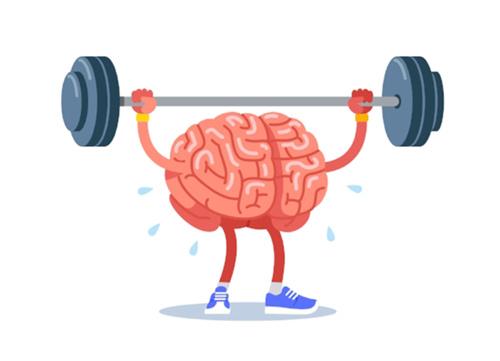You are here
Crosswords and sudoku may not stop mental decline
By Reuters - Dec 16,2018 - Last updated at Dec 16,2018

Photo courtesy of wordpress.com
Mental engagement through problem-solving games like crossword puzzles, sudoku and brain teasers may not offset cognitive losses due to age-related dementia, a new study suggests.
Still, practicing these kinds of activities throughout life might boost mental ability and provide a higher starting point before decline, researchers write in The BMJ.
“This puts the ‘use it or lose it’ conjecture into question,” said lead author Roger Staff of the University of Aberdeen in the UK.
Instead, childhood mental ability and intellectual engagement throughout life seem most related to cognitive scores after age 65, he said.
“This idea is more about what you enjoy and gravitate towards throughout your life,” Staff said in a telephone interview. “Smart people want to engage rather than go home and not do anything.”
Staff and colleagues were able to factor-in childhood ability when looking at decline in later years by analysing data from Scotland-wide testing in 1947 of all children born in 1936. Some of these students were recruited into a long-term study of aging when they were 64 and came back for testing up to five times over the next 15 years.
During these visits, a psychologist administered tests to evaluate memory and mental processing speed.
Staff’s team focused on about 500 participants, and also looked at their scores on a questionnaire measuring intellectual engagement, which the researchers defined as people’s interest, enjoyment and participation in reading, problem solving and thinking about abstract ideas as well as their overall intellectual curiosity.
Overall, they found that early-life intellectual measures were associated with later-in-life engagement levels. In particular, early and continuing intellectual engagement in problem solving activities was tied to delayed cognitive decline in old age.
Nevertheless, cognitive performance declined for everyone over time by about one point per year, indicating that decline cannot be prevented, Staff said.
“We were expecting to find an association between intellectual engagement and the trajectory of decline and the received wisdom of ‘use it or lose it,’” Staff noted. “That seems important in terms of the group of friends and the interests you have to start with but not the rate of decline.”
If decline starts from a higher level of cognitive ability, it will likely take longer to reach a level that is noticeable or interferes with functioning, the study team writes.
“The higher up the mountain you are, the more you can lose before you’re impaired,” Staff said. “Essentially, people shouldn’t be afraid of a difficult task in front of them and should acquire a language or musical skill or tackle that dense novel.”
Although cognition declines with age, targeted cognitive training programmes can improve certain specific abilities later in life, said Karlene Ball of the University of Alabama at Birmingham, who was not involved in the current study.
In her own research, she says, she has “found that improved cognition is long-lasting in that those who are trained are still better than they were prior to training, even after five-10 years”.
“Novelty is important,” she told Reuters Health by e-mail. “Participants needed to be continually challenged by novel tasks which push them to greater and greater difficulty levels... which can provide people with a higher cognitive ability level to sustain function into later life.”
Related Articles
By Dina HalasehEducational Psychologist We talk about keeping our body healthy but what about our brain?
By Linda CarrollNumerous studies have shown that aerobic exercise can improve cognition in seniors, but a small new study finds that vigorou
Forget about Sudoku, crosswords, puzzles or Rubik’s cube. Computer programming is still the ultimate mind game.













